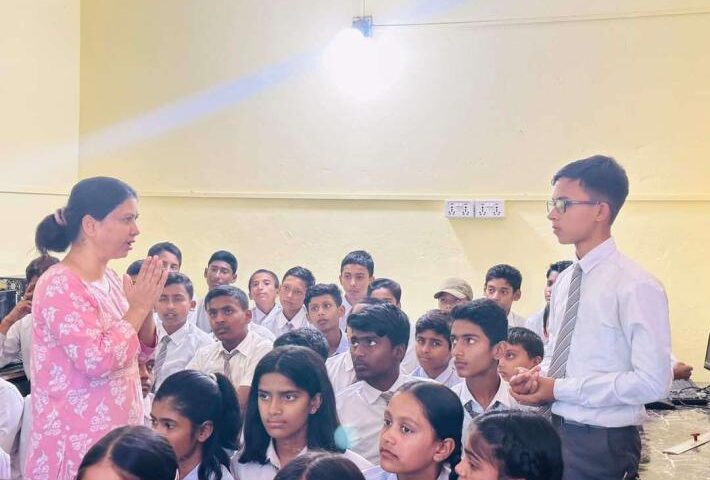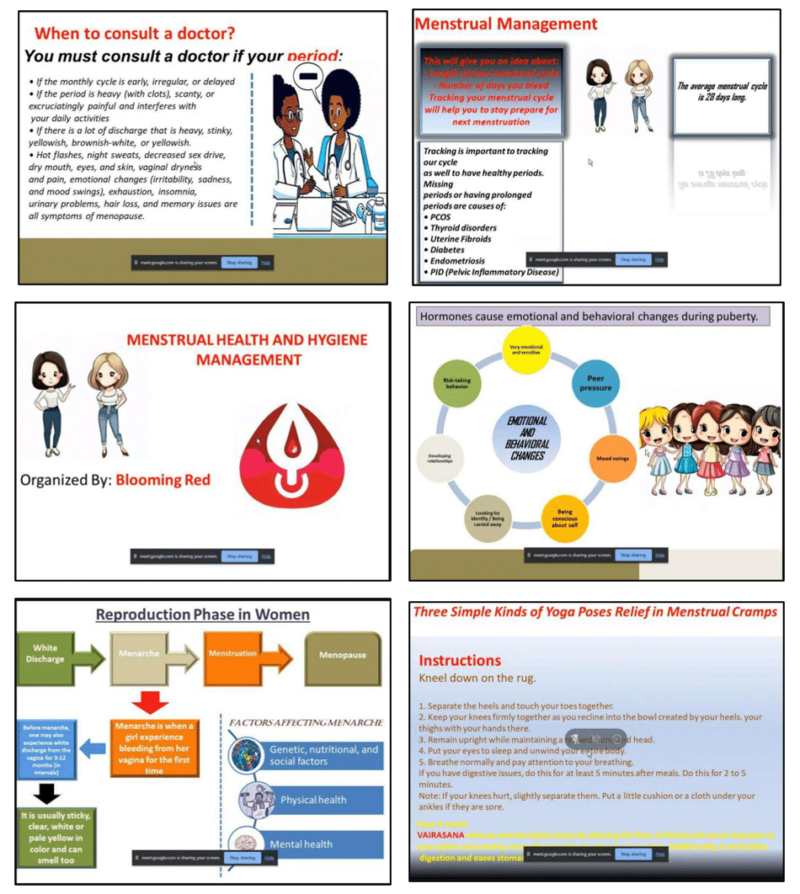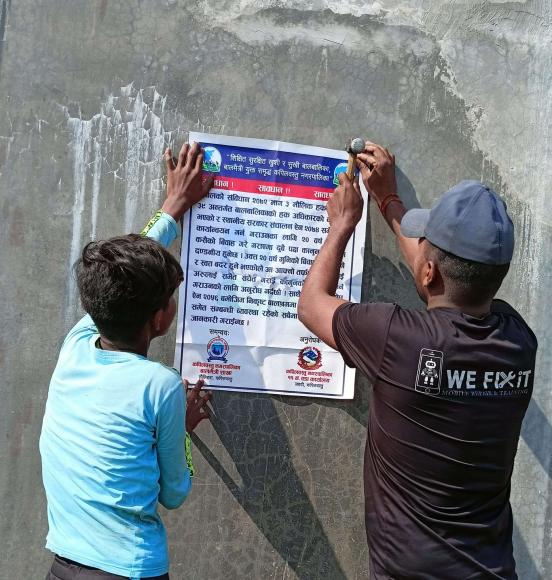
Let’s Talk About Menstruation: Normalizing Conversations About Periods in Nepal
August 10, 2023By Dhruv Bhatt, 2023 Future Blue Youth Council member
“At home, in school, bus stand or airports
[We] did our business changing our pads in the quiet
In ugly, smelly broken toilets with empty buckets
We didn’t expect any better
Someone told us menstruation was dirty
Dirty things are not discussed to improve upon.”– Excerpt from “THAT SEETHING PAIN” by Urmila Chanam
According to UNICEF, two-thirds of all women in Nepal do not participate in everyday activities while menstruating. In many areas, menstruating women, especially those from certain castes, cannot use toilets, visit temples or worship, bathe, touch cows or consume milk products, look in mirrors, or even touch plants! Chhaupadi, a regressive social tradition of isolating menstruating girls and women outside their homes, persists in some regions of Nepal, despite an official ban.
In Nepal, menstrual stigmas take root even before a girl reaches puberty. A lack of age-appropriate advice on menstrual hygiene in schools means that most girls get information from their mothers, who often perpetuate taboos. Beyond propagating the notion that “menstruation is dirty,” the absence of menstrual education leads to several environmental issues. For instance, UNICEF found that 53% of Nepali girls changed their sanitary pads/cloths at school and took waste home in plastic bags, while 47% threw dirty pads into rivers or bushes. Many girls said they were afraid to use toilets during menstruation due to fear of leaving marks.
Bishal Panthi from Lumbini Province in Nepal became acutely aware of these issues when he saw young girls in his community experience shame and anguish each month while on their period. In his own words: “I was really affected [by this experience], which strengthened my resolve to affect real change and make sure that no girl or woman in our community ever has to go through such suffering once more.”
“I was really affected [by this experience], which strengthened my resolve to affect real change and make sure that no girl or woman in our community ever has to go through such suffering once more.”
This resolve guided him as he first began discussing menstrual hygiene with his friends. He was delighted to see their faces brighten up, and the overwhelming support he received from his peers moved him. Many young people joined him in his mission to normalize conversations around menstruation and menstrual taboos and “each brought a unique set of abilities and knowledge to the table, ideally balancing one another.”
In December 2022, Bishal and his friends began working on a socio-environmental advocacy project to increase menstrual awareness amongst girls and women in his community through an environmentally focused curriculum. Beyond educating girls and challenging social norms, they planned on meaningfully engaging them in the creation and proper disposal of sustainable period products. To honour their mission of sparking meaningful dialogue with and for menstruators in Nepal, they aptly named their project ‘Let’s Talk About Menstruation (LTAM): Normalizing Conversations About Periods in Nepal.’
Their ambitions were recognized by Bow Seat when they were selected as a 2023 Future Blue Youth Council Fellowship Grantee. With funding and mentoring support from the Future Blue Youth Council, LTAM launched their first online menstrual awareness webinar! It was a complete hit amongst school girls who, for the first time in their lives, discussed their menstrual needs and experiences in a safe, inclusive space. To further promote gender equality in the city of Butwal, LTAM distributed pamphlets and flyers in public spaces written in Nepali.


In mid-2023, LTAM joined hands with Tech Education Nepal and Tilaurikot Yuwa Club, who guided them on effectively using technology for education and enhanced their community involvement and local impact. Behind the scenes, Future Blue Youth Council Mentors (Ariana, Emily, Yuzuna, and I) worked to integrate eco-friendly menstrual practices and environmental themes in LTAM’s workshops and helped them set up their first social media presence!
The immense success of LTAM’s online workshops paved the way for physical sessions in schools. Their offline menstrual awareness campaign Blooming Red addressed topics such as the environmental aspects of conventional menstrual products, bio-friendly sanitary napkins, and the myths and facts of menstruation. With the support of two local organizations, RoboTech Nepal and The Skill Wheel, LTAM led counselling and pad-making workshops to equip school students with vocational skills and evidence-based information.

According to Bishal, these sessions were transformative even for the LTAM team: “During a physical session at a school, a group of students amazed everyone with their innovative idea of making eco-friendly sanitary pads from locally sourced materials. They not only demonstrated their concern for the environment but also the possibility of community-wide, sustainable menstrual hygiene practices.”
But these initiatives were not without challenges. Frequent power outages and unstable internet connections made it challenging to conduct webinars. Particularly in the rural regions, participants found it difficult to engage in online sessions due to limited access to smartphones, laptops, or the Internet. Furthermore, the monsoon season presented logistical difficulties for physical sessions due to excessive rainfall and unfavourable weather, making it difficult to travel to some locations and affecting attendance.
Bishal believes that further cooperation at the provincial level will help LTAM reach more people, particularly in vulnerable communities. They are looking forward to increasing the influence of their campaign by partnering with reputable media outlets to publish news items and features showcasing the project’s accomplishments and results. They are making waves already and were featured on ICT Samachar, a popular news media of Nepal! Finally, they plan to nominate LTAM for the Citizen Entrepreneurship Competition 2023 to further mainstream their project and receive additional support. We wish them luck!
Sharing his thoughts about spearheading a socio-environmental project at the age of 20, Bishal said that young changemakers need to embrace their change-making potential “with unrelenting enthusiasm and dedication because [their] actions have the potential to move people and have an impact that lasts a lifetime.” He believes that “change requires patience and tenacity” and aims to stay strong as LTAM changes the fates of hundreds of menstruators in their community, one conversation at a time.
